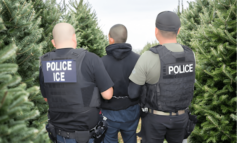
WASHINGTON D.C. — Arriving late to a flight with a confused look on your face and sweaty palms is enough to arouse suspicion among airport security screeners, according to an internal Transportation Security Administration document released by The Intercept.
Last week, the online publication released a 92-point checklist that the TSA has reportedly used to determine if air travel passengers might pose a potential risk if allowed to board flights departing from United States airports.
The two-page document is not top-secret, but does contain an itemized, never-before-published list of traits and characteristics that TSA agents are trained to look for in accordance with the Screening of Passengers by Observation Techniques program, or SPOT, initiated by the agency in the wake of the September 11, 2001 terror attacks.
Each entry on the checklist is allocated a specific amount of “points” and TSA agents are advised to refer travelers that accumulate enough to surpass certain thresholds.
A passenger who “arrives late for flight” “avoids eye contact with security” exhibits “exaggerated yawning” or appears to look pale from a recent beard shaving is allocated one point for each of those ‘stress factors’ on the SPOT Referral Report published by The Intercept. Four points is enough to refer a person for additional screening.
If combined with an “obvious ‘Adam’s Apple’ jump” and excessive sweating, a passenger garners six points and should be referred to the police.
‘fear factors’ that are valued at two points each include “widely open staring eyes” a “cold penetrating stare” and a noticeable “contempt for the screening process.”
‘Deception factors’; including appearing to be confused or in disguise, are valued at three points each. Displaying any two would elevate a passenger to a score of six – enough to be referred for selective screening and prompt law enforcement to be notified, according to the report.
When approached by The Intercept for comment, a spokesperson for the TSA declined to comment specifically on the leaked report, but said that behavior detection is just one of many efforts undertaken by the agency that’s vital to its goal of deterring, detecting and disrupting “individuals who pose a threat to aviation.”
The American Civil Liberties Union filed a lawsuit against the TSA just last week in an effort to obtain records on the SPOT program, according to The Intercept, after Freedom of Information Act requests for relevant documents went ignored.





Leave a Reply